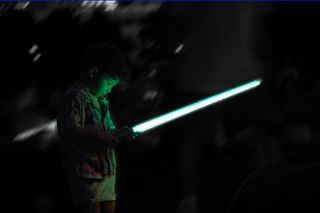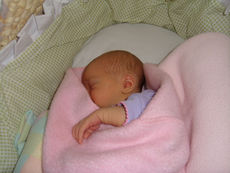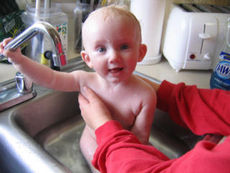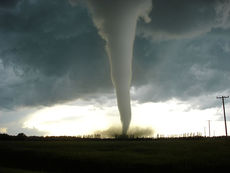Memory
Early Memory and Autism
Why do many people with autism have prolific and vivid early memories?
Posted December 30, 2013

In a recent Psychology Today post, Arthur J. Clark, Ed.D. asks “Why are early recollections sparse and prosaic?” This caught my attention, because my early memories are not sparse at all. Whether they are prosaic is arguable. Dr. Clark mentions that most people can recall only four or five memories which occurred prior to the age of seven. I came up with more than three times that, in a matter of seconds. I started jotting them down, and eventually had to stop. There were too many of them.
So, what’s going on here? Well, I’ve known for a long time that was something different about my memory. After so many years living with my husband, who isn’t on the spectrum, I’ve gotten a chance to see the differences first hand. It took me many years to realize that the differences were not just between myself and my husband – but wider in scope.
When talking about our early experiences, I’d ask my husband about specific experiences at specific ages. He’d reply he didn’t remember. I was perplexed by this. Could this possibly be the truth? Eventually, I came to realize he was indeed telling me the truth – but this led to another worry. Was there something wrong with his memory? I thought everyone had the same type of early memories that I did, and wondered if he had some kind of memory loss.
It was only when I began learning about autism, that I began to realize that maybe what was going on with him wasn’t pathological at all, but just a symptom of our differences. But, until I read Dr. Clark’s post, I’d not really been able to quantify the differences between my own early memories and those of others. I had no idea the scope of the difference.
Why are early memories so sparse among neurotypical individuals? Dr. Clark speculates: “One possible explanation of the sparsity of early recollections is that they are purposeful for an individual, and a high number of the memories might obscure their clarity and essential focus.” In other words, the small amount of memories form a sense-making message can become the basis of our beliefs about ourselves and about life.
If that’s true, then what do my differences mean? Does the fact that I have so many memories somehow undermine my ability to make sense of my beliefs about life? Does the fact that there are so many of them mean that they are not purposeful? I’m not sure about that...
Curious as to how my experiences stacked up against the experiences of others on the spectrum, I googled the question, asked my followers on social media to weigh in. What I got in response seems to suggest that a significant portion of us do have this kind of comprehensive early memory. Almost all of those who responded indicated having early memories of age three or earlier, and a few were able to remember being a baby!

For example, Michael F. Wilcox wrote: “My earliest memory is of being in a baby basket in the back seat of a car (this was long before carseats) and the car came to a sudden stop, dumping me on the floor. Everyone made quite a fuss, but I was not hurt. I could write a whole book about what happened before I was 7.” Several reported memories of babyhood or toddlerhood, being in cribs or cradles. On a Wrongplanet.net thread on the subject one woman wrote that she remembered having a bath in her grandmother’s sink. When comparing the experiences with early memory in people on the spectrum, there appear to be some common trends:
- Confusion/Alarm Over Sparsity of Neurotypical Family Members’ Early Memories
It appears that I am not the only one to have felt dismayed or concerned at the fact that a neurotypical spouse did not share the same pattern of early memory recollection, especially before learning about autism. As one man on the Wrongplanet.net thread wrote: “My wife claims she can't remember anything from before the age of 10, which I find puzzling, and rather alarming. I can't imagine not having memories of childhood.” - Sensory Issues and Experiences
Perhaps not surprisingly, given how central sensory issues tend to be in the stories of adults on the spectrum, many early memories tended to be sensory-based memories. As Liliana Tovar King wrote: “Most of my memories are sensory-based (colors, textures, smells, etc.). I've confirmed dates with my mother because most people don't believe I have memories that date back to when I was as young as 12 months. I remember the smell/taste of the rubber nipple on a bottle, metallic royal blue plastic and metal car seat, the smell of wall paint (custard-yellow)...so many more details. I vividly remember dreams (also color and smell-filled).”
Another example is the woman who remembered bathing in her grandmother’s sink. The crux of the memory focused on the sensory issues she experienced as her grandmother bathed her: “She was scrubbing my toes with a rough brush, blechhhh! Sensory nightmare. I told my mother about it years later and she said she had no idea. I'm quite sure my grandmother never told me about it either. It's mine.”
Many of my memories are also sensory. I have an entire series of memories that deal with my sensory struggles around naps. In one, I’m trying to sleep in a blue net hammock. I like it, because it’s the type that hugs my body closely, giving me calming pressure, but it’s also extremely uncomfortable when the net comes into contact with my bare skin. It cuts in, so I can’t get comfortable. In another, my father plays quiet music while I sleep, hoping it will soothe me, but the song contains a quiet chanting in the background that gives me nightmares.
Still others chronicle further attempts to get comfortable. I try to sleep wedged between the wall and my bed, but the bed keeps moving, dumping me on the floor. I try sandwiching myself between the bed and the box spring, only to garner a scolding from my frantic father, who was fearful that I might suffocate myself. I even try sleeping in an inflatable toy canoe someone had given to us, but it gave off an overwhelming vinyl smell, and made squeaky noises every time I moved. I can date them all to before I was seven.
- Recognizing We’re Different
Other early memories document moments and experiences when we begin to realize we are different, and how our different responses to stimuli set us apart from others socially. At age three, one poster on the WP thread noted that she started,”...being aware from the difference between me and others.” Michael Wilcox mentions that this happened for him in Kindergarten, calling it a “rich experience.”
In my case, sensory issues gave me the first memories of realizing I was different (and my first lesson about talking about those differences). I was at my babysitter’s house. Behind their house, they had a small paved patio where the kids would play, but it became uncomfortably hot during the height of the day. Their solution – install a green fiberglass sheet to block the sun. It cooled the backyard, but had an unpleasant side-effect – a stench which the heat of the mid-day sun only worsened. Just a whiff of it made me gag. The other kids react like I’m crazy. They don’t notice the smell. They like to go out and ride big wheels at exactly the time of day when the smell is at its worst. They don’t understand why I instead choose to stay inside the dark house watching cartoons with the babysitter’s elderly husband. This could have occurred no earlier than early Kindergarten, but was more likely preschool.
- Traumatic or “Highly Charged Events”
Emotionally charged or traumatic events seem to have stuck out in people’s minds as well. One person said they remembered, “…bits and pieces of 'highly charged' events..” such as a cat scratch in the face during toddlerhood. Another poster concluded: “I think traumatic events are really good at committing things to permanent memory.”Yet another WP poster described his first memory: “It was late evening and growing very dark. My parents placed me on the center section of the sectional couch. Dad was on one end, and Mom on the other. And I lay there listening to the strong claps of thunder as lightning illuminated the house. The lightning became the only lights in the house as the electricity went out. Then there was a tremendous rushing of wind outside as Mom and Dad secured me between them.
That event happened during the spring of 1965 when I was six months old. There was a tornado only a few miles away from our house. It is still a vivid clear memory.

I also have very clear memories of a tornado that struck our community in 1968 when I was three years old. I remember what we were doing before it struck, during the wind, and what we did afterwards---we went to the grocery store (there was hail everywhere and a lot of our house's paint had peeled off along with several shingles).”
I have many such memories –like time my father and I were out in bad weather and I nearly blew away, or when an accidental fire came dangerously close to burning down our home. I can remember what it felt like, things I saw, heard, and felt.



- Positive Feelings (Happiness, Curiosity, Exploration, Fascination, Wonder) Thus far, most of the categories I’ve talked about center on more negative emotions – but there’s a whole chunk of early memories that I have that are the opposite. Some are memories about exploration, learning, wonder, curiosity, such as watching my father build me a “rope bridge” he learned in the boy scouts, exploring plants and smells I liked, or my first encounter with a compass (I was in preschool and didn’t know what it was). Other memories are just pure happiness, such as when my parents gave me gifts (a playhouse, a swing, and furniture that fit me just as theirs fit them), sitting in the backyard painting pictures or eating soup with my best friend. Examples given by others are memories of movies that were special interests, fascination with the color of fingernails, or memories of early birthdays (and birthday cakes!).
It seems that for some of us, early memories are anything but sparse – the question is, why? Some researchers have speculated, but none seem to have concrete answers. Does the fact that there are so many of them mean that our memories lack meaning? Some theories argue this to be true—that they are a product of “weak central coherence” which prevents us from contextualizing events or “seeing the big picture.” But the fact that there appear to be patterns in the types of early memories that emerge suggests to me that we also use our memories to build a sense-making narrative of the world – our own “big picture,” but in a way that’s slightly different than our neurotypical peers.
While they sketch the meaning of life in broad strokes, our picture is created in great detail, a product of a mosaic of vividly colored memories. What I take from that picture is this:
People can be different. Often people don’t understand, and that can make relationships hard. The world can be overwhelming, scary, and sometimes out of control – but if you persevere there are plenty of wonders to explore along the way.
For updates you can follow me on Facebook or Twitter. Feedback? E-mail me.
My book, Living Independently on the Autism Spectrum, is currently available at most major retailers, including Books-A-Million, Chapters/Indigo (Canada), Barnes and Noble, and Amazon.
To read what others have to say about the book, visit my web site: www.lynnesoraya.com.
RELATED READING
- WrongPlanet.Net: Is extremely early memory associated with Autism?
“I ask this because I have always been told that it was impossible to remember events in infancy, well at least for a NT person.
I was told that often, events which we believe to remember from infancy are in fact reconstructed memories based on stories that family or friends have told us again and again.
In my case, I pretty much have a fairly complete and clear memory of around age 2 and up. Potty training (sadly...), every birthday, every vacation, every preschool I attended, etc.
However, I also have several mysterious memories which, based on evidence I believe to be much older.”
- Storify: Early Memories in Autism
I asked followers on the spectrum what their earliest memories were, and how many of them there were. Here are their responses.




